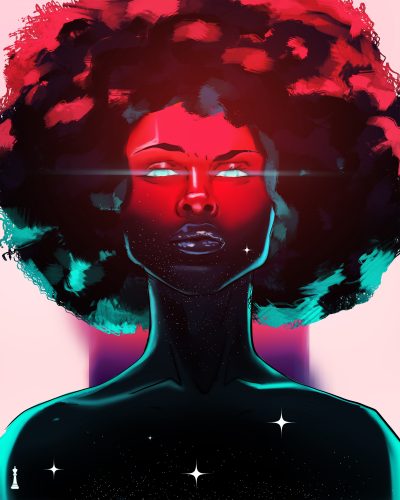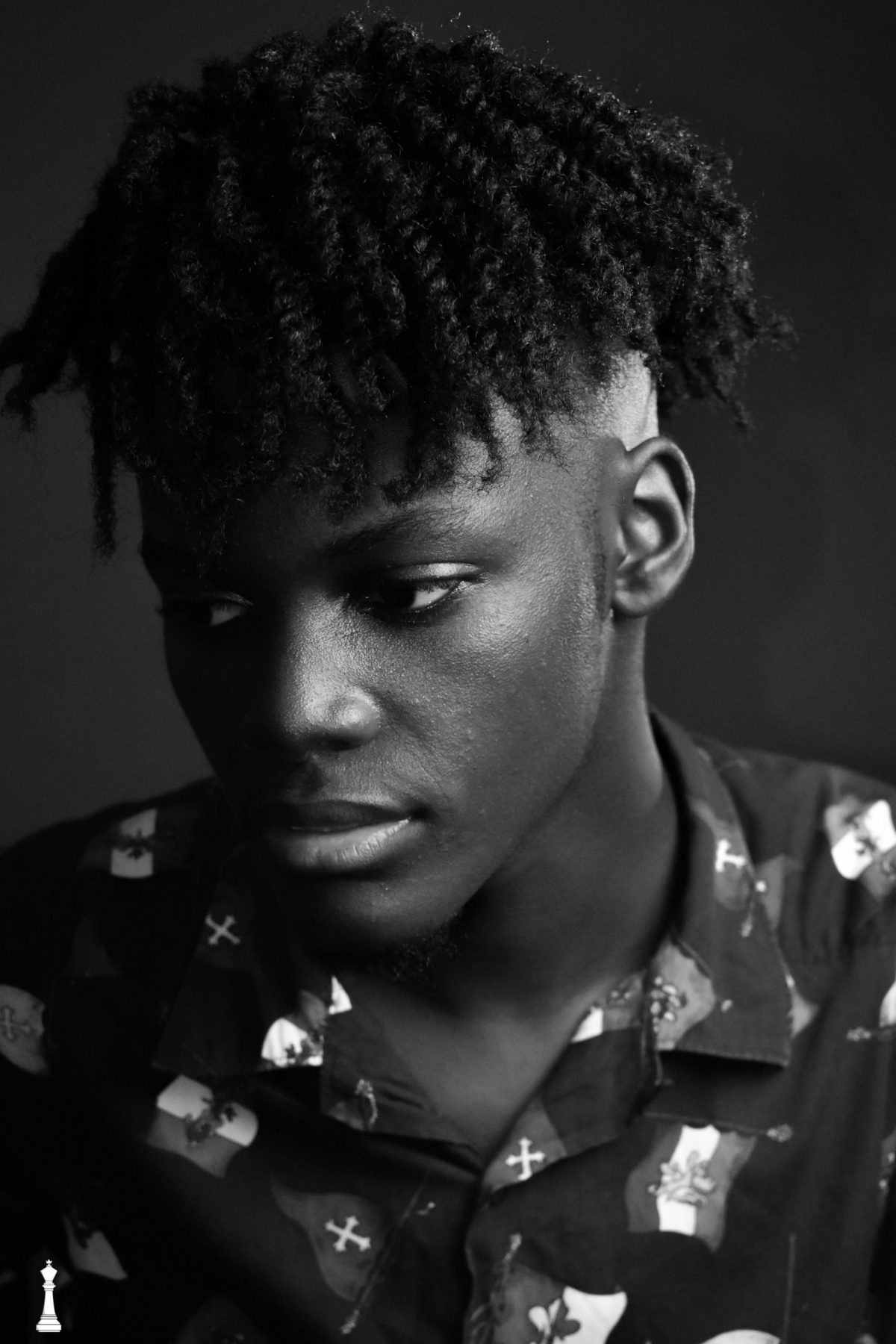By Rae Wiltshire
On his Instagram page, graphic designer, colorist and special effects artist Akeem King has posted drawings of black women with locs and afros. They are usually not from Earth, but their bodies exist in other worlds. One of his most poignant pieces is of a woman who has a big red afro and face, with the universe on her chest and a white glow in her eyes.
King has elevated blackness beyond the realms of earth after he was bullied as a student for having dark skin. His vision for himself has outweighed the collective hatred and has given his art imagination and flight.
“I didn’t [have] a lot of friends. I was this nerd person in school. [I] used to get bullied and all these different things. I had no self-confidence, no self-esteem, nothing,” King told Stabroek Weekend in a recent interview.

“Why were you bullied? ’Cause you were nerdy?” I asked.
“Yeah basically… and, and black, like racism was a crazy thing back then,” he explained. “I remember one time a girl told me I would be desirable if I wasn’t as dark. So that was some serious stuff that was happening.” He said children would often take his stuff away for no reason. The experience caused him to believe that he was unattractive and led to jealousy of light skin boys, who attracted the attention of girls. The trauma of bullying because of his skin-colour has shaped him as a person and an artist.
King showed up for our interview with a pressed T-shirt, khaki track pants and some sneakers that looked like they were recently bought. His hair was screwed. I thought he had a really good fashion-sense. It turns out I was meeting the present Akeem King. His fashion was self-love and acceptance of self. He said he transitioned away from accepting how others saw him and started to develop a fashion style by wearing clothing that he liked. He also began to tell himself that he is not unattractive and used affirmations to confirm his feelings; leading others to confirm how he felt. This love helped him to develop healthy habits, like not eating late at night because this can lead to fatigue the next day and less output from him. As a freelance artist, this is important for King. It is another form of self-care. A change in his viewpoint brought opportunities for his career and he has started to network. He enjoys working with people online and is slowly building up the confidence to know them on a more personal level.
King also said one of his friends at university made him aware that a lot of his negative feelings were internal. The bullying had stopped since primary school but he was still carrying it around. It was this perspective that showed him he can be more than his perception of self. Sometimes we give too much power to people who feel it is their right to define us. We forget that we have power to define ourselves and we don’t have to live through the lens of others. It is unfortunate and it takes reflection to see the power we have over our mind to shape our future through thoughts and actions.
King fortunately also had support growing up. He describ-ed his parents as very supportive, especially his mother, who would show off his drawings to her friends. He remembered that as encourage-ment and support to continue doing what he liked.
King’s story reminded me of the Chinese philosopher Lao Tzu’s quote, “The journey of a thousand miles begins with one step.” The act of calling himself attractive was a single action that led him on a journey of self-care in other aspects of his life. He took a holistic approach and this has had a ripple effect. Each step was important and loving his skin despite the animosity from others provided him with a basis for a better future.
King’s approach to work shows the importance of self-awareness to productivity and creativity. One negative thought can lead to another and cause us to feel useless. Seeing every aspect of oneself in a positive way can help us to make better decisions for our present and future life.
King’s biggest project to date was designing for the recently held Curl Fete. He had tight deadlines and many deliverables. To accept this project, he had to divide himself into temporal halves—both past and future Akeem Kings. Past Akeem accepted responsibility and future Akeem had to deal with the decision. He benefitted from this line of thinking. He had wanted to work for Curl Fete, but was unsure given the scope of such an event and the amount of work. Past Akeem ended up taking the job and future Akeem had to deal with the decision. The decision made Past Akeem plan meticulously so future Akeem could meet deadlines and hand in his deliverables. It is a decep-tively simple way of thinking. He has foresight of how past decisions can change the course of his life. It was self-care for a time that has not arrived.
Oftentimes, there is a romanticization of the artist as tortured people who suffer from mental illness. But mental health issues, which can manifest as melancholy but also insomnia, poor memory and decreased critical thinking, can lead to lack of productivity. Art is not just purely emotion. There are often organisational aspects and logical thinking when creating. Lack of care for oneself can hamper this.
You can visit King’s Instagram page at https://www.instagram.com/akeempowers/?hl=en.

